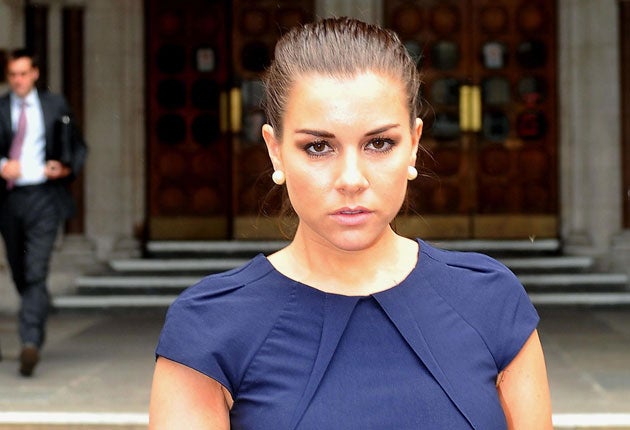Andreas Whittam Smith: Principles? This fight has always been about power and money
Some MPs are always looking for an occasion to let judges know that they make the law, not judges

Your support helps us to tell the story
From reproductive rights to climate change to Big Tech, The Independent is on the ground when the story is developing. Whether it's investigating the financials of Elon Musk's pro-Trump PAC or producing our latest documentary, 'The A Word', which shines a light on the American women fighting for reproductive rights, we know how important it is to parse out the facts from the messaging.
At such a critical moment in US history, we need reporters on the ground. Your donation allows us to keep sending journalists to speak to both sides of the story.
The Independent is trusted by Americans across the entire political spectrum. And unlike many other quality news outlets, we choose not to lock Americans out of our reporting and analysis with paywalls. We believe quality journalism should be available to everyone, paid for by those who can afford it.
Your support makes all the difference.In the matter of famous people and their rights to privacy, there have been two battles going on. The first is media versus celebrities. The second, which arises from the first, is a fight between MPs and judges as to who should set the rules. Yesterday it finally became clear, with the naming in Parliament of Ryan Giggs as the footballer who had obtained a court order banning mention of his sexual relationship with a reality television star, that the media would shortly get what it wants.
Don't suppose that this tussle has had anything to do with high principles. From the beginning it has been about power and money. In the early days of dealings between a celebrity and the media, the two sides work together. People who play to paying audiences will give almost anything for media attention because their stock-in-trade is fame. If they have to engage in stunts, then that is what they do. The relationship is often one of connivance. In terms of selling newspapers, magazines, radio and television programmes, the media greatly benefit from their intrusion – sometimes more apparent than real – into the lives of famous people. This is the period when nobody can believe that things could get nasty. Both sides are doing so well out of it.
In the second phase, the media learn that the celebrity has committed a genuine indiscretion. From the media's point of view, this is even better news – it will sell more newspapers, magazines etc. The celebrity objects that these are not the terms of trade that were envisaged. So he or she turns to the law. Recently – or at least until yesterday – celebrities had a stronger position than used to be the case as a result of the Human Rights Act. They have been able to obtain injunctions that prevent any mention of their indiscretion on the grounds of protection of privacy.
But this could never be the final position so far as the media are concerned. They had lost a skirmish, that's all. So the media naturally turned to a well-tried manoeuvre. They would scrupulously obey the injunction while unofficially leaking its contents far and wide. Their hope is that they will reach a situation, whether by widespread publication overseas, or even in Ireland or Scotland, or by the chancing of arm by editors of small circulation publications, when they will be able to say "Look, the news is out, what is the point of the injunction? It is unfair." Nowadays, of course, with the development of the internet, nothing could be easier.
Especially as some MPs have decided that they wish to join forces with the media. They do this because they are always looking for an occasion to let judges know that they make the law, not judges. This is unfair on the judges who can only work with the legislation that Parliament supplies, but tant pis. This is about power when it is not about money.
Join our commenting forum
Join thought-provoking conversations, follow other Independent readers and see their replies
Comments